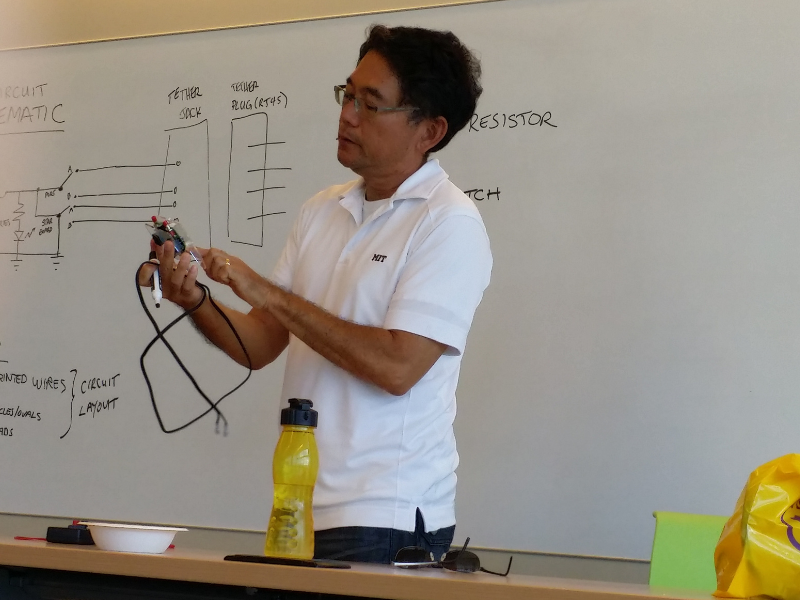Spotlight on HPU Faculty: Robert Nakata, Ph.D.

At a conference in Silicon Valley Robert Nakata, Ph.D., MBA, sat down next to a quiet man with jet-black hair. He wore jeans and a turtleneck shirt, sipped ice water, and looked down at his notes for a long afternoon of presentations. The man’s round John Lennon-esque glasses reflected in the lights of the ballroom. It was 1999. The man was Steve Jobs.
“It was my chance to say hello to Steve, to show him a new mobile internet access device,” said Nakata. “So, I said, ‘Steve, I have a new product that my company is working on. Imagine an iMac in your hand! It accesses the internet, sends emails and text messages, and fits right in your pocket.’"
“That’s really cool,” said Jobs, taking the phone from Nakata’s hand. Jobs studied the silver phone, analyzing the buttons, the screen, the intuitive design.
“He thanked me for giving him the device. Years later, I now refer to it as the iPhone 0,” said Nakata, smiling at the possibility that his technology helped spur the invention of the iPhone, the most revolutionary technology device in decades.
HPU Associate Professor of Engineering Nakata is a serial entrepreneur with 35+ years of experience at startups and public companies in the technology industry. He is a subject matter expert on radar sensors, autonomous navigation sensing and business strategy for startups. He received his bachelor’s and master’s degrees in electrical engineering and computer science from the Massachusetts Institute of Technology; he received an MBA from the Wharton School of Business and holds a Ph.D. in electrical engineering from the University of Hawai’i.
“I would like to see Hawai’i become a startup paradise,” says Nakata, “where technology and entrepreneurship become the third leg of the stool in our economy. We depend on tourism and the military, but technology development makes perfect sense in Hawai’i.”
A few of the popular courses that Nakata has taught at HPU include Introduction to Engineering and Professional Practice, Digital Circuits/Microcontrollers and Lab, Control Systems and Lab, Design Project II, Engineering Research, Introduction to Innovation and Entrepreneurship, Management Strategy I and Management Strategy II.

